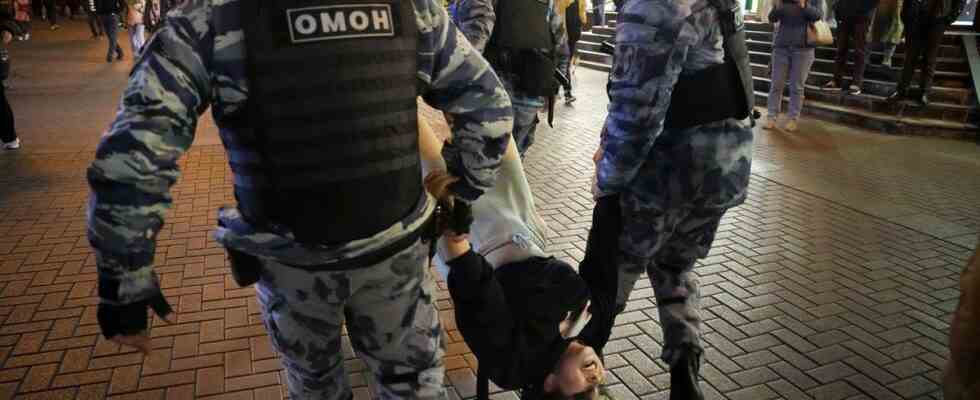This is a first for the UN. The United Nations Human Rights Council on Friday established a Special Rapporteur’s mandate to monitor the repression of opponents in Russia. The 47 Member States of the Council adopted a resolution to this effect – proposed by a large part of the Member States of the European Union – with 17 votes in favour. Twenty-four countries abstained and six voted against, including China but also Cuba and Venezuela. This is the first time that Moscow has been targeted by a text concerning the human rights situation inside the country.
Before the vote, the Russian ambassador to the UN in Geneva Gennady Gatilov, the former Russian deputy foreign minister, criticized the text and accused “Western countries of using the Council for political ends”. Moscow, which left the Council when the UN General Assembly voted to expel it a few months ago because of the invasion of Ukraine, nevertheless has observer status and, as such, can speak to the Council.
Deterioration
The resolution, adopted on the day of Russian President Vladimir Putin’s 70th birthday, decides to appoint a Special Rapporteur to monitor “the human rights situation” for a period of one year. It will “collect, review and assess relevant information from all stakeholders, including Russian civil society, both inside and outside the country”.
“For years, we have witnessed a continuous deterioration of the human rights situation in the Russian Federation, which has accelerated in recent months,” Luxembourg Ambassador Marc Bichler said, presenting the text to the Council. . “Recent draconian laws to stifle independent media and ‘undesirable’ organizations, harsh penalties for anyone who questions the government, or the large number of people arrested in connection with protests, are some recent examples of a policy of systematic repression,” he said.
Dangerous drifts
The adoption of the resolution comes shortly after the Nobel Peace Prize on Friday awarded imprisoned Belarusian activist Ales Bialiatski, the Russian NGO Memorial – banned in Russia – and the Ukrainian Center for Civil Liberties, a highly symbolic prize in the midst of war in Ukraine. “Who can seriously doubt that the human rights situation in Russia is currently in serious deterioration? launched the French ambassador, Jérôme Bonnafont, before the Council. “The awarding this very morning of the Nobel Peace Prize to two Russian and Ukrainian NGOs and to a Belarusian activist clearly marks the growing attention and concern about a dangerous drift,” he added.
The Council already launched in May a high-level investigation into violations committed by Russian troops in Ukraine. And there was growing pressure, especially from NGOs, for the body to also look into human rights abuses in Russia.

